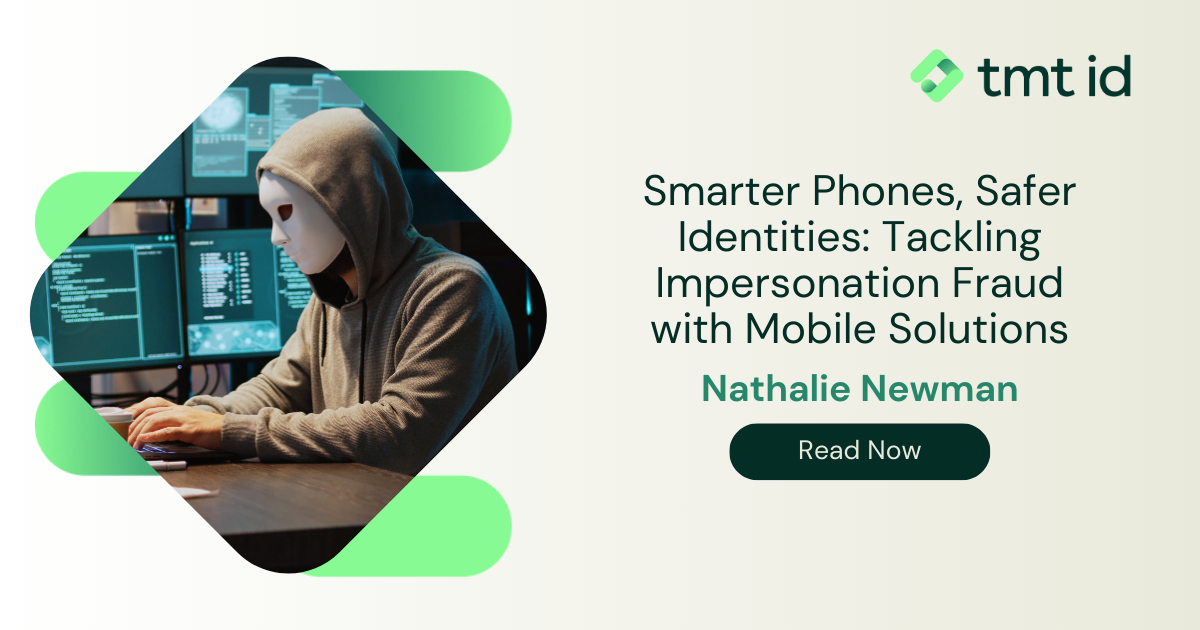
Impersonation fraud, also known as identity fraud, occurs when someone pretends to be another person or entity to deceive victims and gain unauthorised benefits. These benefits often include financial gain, access to sensitive information, or other valuable services.
Recently the BBC highlighted the widespread nature of this threat during its Scam Awareness Campaign, publishing several articles that shed light on the experiences of scam victims. These stories revealed the personal and financial toll of impersonation fraud and demonstrated how advanced tools – like those offered by us – could potentially prevent such crimes.
Here are some of the scams mentioned that our tools could have spotted, and prevented from happening:
One BBC article detailed how scammers exploit Voice ID software, which many banks use for online account access verification. In the experiment, a reporter successfully bypassed her own Voice ID system multiple times using an AI-generated clone.
This highlights a critical vulnerability, but scammers attempting to use AI to mimic a customer’s voice will most likely not have access to the actual customer’s mobile device.
Our Silent Network Authentication solution – Authenticate – works in tandem with voice ID to reduce fraud. By silently verifying whether the device and mobile number associated with the account match, banks can flag and prevent fraudulent attempts by scammers who might have access to trained AI voice software. Authenticate is often paired with our SIM-Swap checks on a backup OTP, allowing banks to investigate any suspicious activity surrounding each level of their authentication procedure.
Another scam reported by the BBC involved a woman who was pressured over the phone into withdrawing £4,000 by saying they were a legitimate business, and something had gone wrong which she needed to fix. They remained on the call for over an hour, even as she entered the bank and withdrew the cash.
This could have been prevented with our Scam Signal checks. Our solution analyses situational behaviour associated with the device and mobile number, identifying red flags that coincide with in-person, or digital bank withdrawals/transfers. If an alert had been triggered, the bank could have paused the transaction for further investigation, potentially saving the victim from financial loss.
One of the most shocking cases involved a man whose mobile network was compromised while he was on holiday. Scammers contacted his provider, posing as him, and obtained a replacement SIM card sent to a London address. Using the new SIM, they accessed his accounts and stole over £50,000.
Our SIM card takeover protection could have flagged this. By identifying anomalies such as a SIM-swap or a change in device behaviour, the bank could have flagged the transaction as high-risk and halted it before releasing funds.

Romance scams are a form of impersonation fraud in which criminals create fake online identities to establish deceptive relationships with their victims. These scams are prevalent on dating websites, social media platforms, and messaging apps, where fraudsters exploit emotional connections to manipulate victims into sending money or sharing sensitive personal information.
Impersonation fraud is an escalating global issue, with costs estimated in the billions annually. Technological improvements that allow scammers to carry out increasingly sophisticated schemes exacerbate the problem.
In the UK alone, financial fraud involving impersonation rose by more than 44% in recent years, with losses exceeding £137 million in 2022, according to UK Finance.
Statistics cited at a recent Telecommunications UK Fraud Forum (TUFF) event provided crucial insights:
Number intelligence and mobile identity solutions play a critical role in combating impersonation fraud. By leveraging the unique attributes of mobile numbers, devices, and associated data points, companies can enhance their Know Your Customer (KYC) processes.
Tools like ours empower businesses to stay ahead of scammers, protecting customers and safeguarding financial systems from new threats. In a world where fraud tactics are becoming more sophisticated, proactive measures like these are no longer optional – they’re essential.
Device insurance fraud is also a growing problem. You can read more about it in our related article.
Last updated on February 4, 2026



Verify offers a vast range of data intelligence around a customer’s mobile number. It helps you confirm a customer’s identity to assess the authenticity of a mobile number and identify any suspicious activity
Check out VerifyWe provide the most comprehensive device, network and mobile numbering data available
Contact us > Chat to an expert >